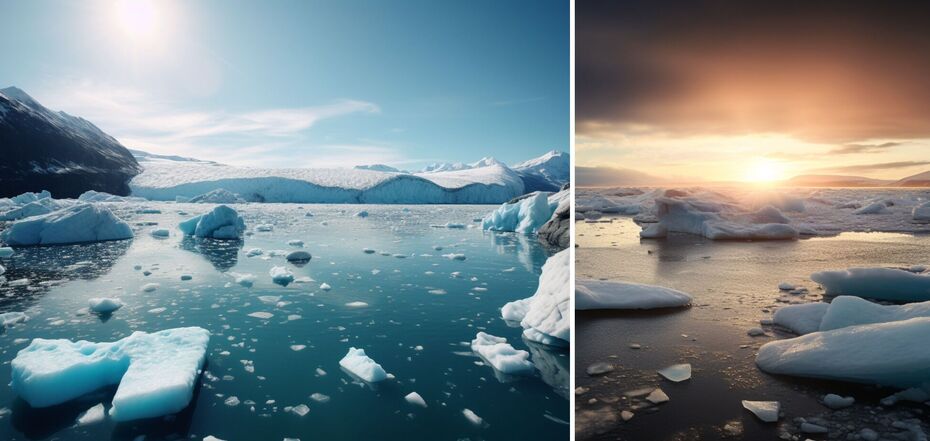Life
The Arctic may lose all the ice much sooner than thought: the fateful date has been announced
Already in the 2030s, the Arctic Ocean ice cap will disappear in summer. This will happen ten years earlier than expected, and no human actions will be able to change anything.
It is said in a study published in the journal Nature Communications. Scientists say the summer melting of huge floating glaciers at the North Pole will not be affected by reducing carbon dioxide emissions, which leads to global warming, nor by limiting global warming to 1.5 degrees Celsius.
According to the study's co-author, Professor Dirk Notz of the Institute of Oceanography at the University of Hamburg, this will be the first important component of the Earth's climate system to be lost to greenhouse gas emissions.
Such changes, of course, will not go unnoticed, as they will have a serious impact on the weather, people and ecosystems around the world.
In particular, as the study's lead author, Seung-Ki Min, a researcher at the University of Science and Technology in Pohang, South Korea, explained, it could provoke an accelerated thawing of permafrost, where the greenhouse gases that drive global warming are "buried.
There could also be a rise in sea levels, since the Greenland ice blanket contains enough frozen water to raise sea levels by six meters.
The melting of the sea ice itself will not affect sea level, since the ice is already in the ocean water.
According to Phys, the disappearance of the ice cover also has another negative effect. As long as the ice covers the ocean, about 90% of the solar energy hitting it is reflected back. But when sunlight falls on dark, unfrozen water, this energy will be absorbed by the ocean and spread around the globe.
The North and South Pole have warmed by three degrees Celsius compared to the end of the 19th century. This is almost three times the global average.
Back in 2021, the Intergovernmental Panel on Climate Change (IPCC), a scientific advisory body to the UN, predicted that the Arctic Ocean would become virtually ice-free at least once before mid-century. But it was clarified that this would require more extreme scenarios of greenhouse gas emissions.
The new study argues that this will happen before the 2040s. The prediction is based on observational data from 1979-2019.
Scientists call the Arctic Ocean "ice-free" if the area covered by ice is less than a million square kilometers, or about 7 percent of the total ocean area.
In February 2023, scientists reported that sea ice extent in Antarctica had decreased to 1.92 million square kilometers. This figure is the lowest in the history of observations.
Earlier OBOZREVATEL also said that scientists catastrophically miscalculated the pace of melting glaciers.
Subscribe to OBOZREVATEL channels in Telegram and Viber to keep ahead of the latest events.



























